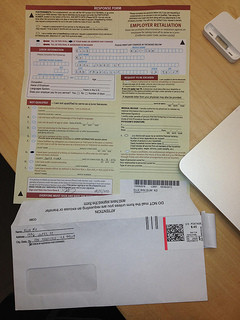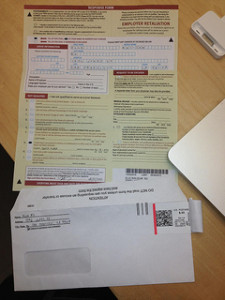Avoid jury duty scams

As you know, when you turn 18 you become eligible to be called to serve on a jury. This may be in city or municipal court, superior court or on the grand jury. It is your civic duty to serve and there are rules regarding being excused by the court.
This post is to alert you to scams underway in several states. Criminals are taking advantage of people who get a jury summons in the mail. And that’s the main point here: most courts contact prospective jurors by snail-mail, not by phone, email or personal solicitations at your home. If your local court summons you to appear to serve on a jury, you’ll get an official notice in the mail like the one shown here. You’ll be provided a contact number for the court that you can use in explaining your availability and willingness to serve. But the court doesn’t usually call you on the phone – landline or cell phone.

standard jury summons
Scammers are making personal calls asking for information including your social security number and date of birth. Once they have this information they can easily steal your identity and get into your bank accounts. Don’t give out this information to anyone unless you know them and have verified their authenticity. Don’t provide your credit card information either. Courts don’t charge fees for serving on a jury. In fact, you may be paid for your time but courts don’t ask for your credit card number to pay you. If you get a call about jury service, ask the caller for their name, phone number and supervisor’s name. Then you can check them out yourself before providing the requested information. If they are legitimate, they will understand your hesitancy to cooperate immediately.
Most courts across the country have websites where you can log on for information about jury service and the process in your area. For federal court take a look at USCourts.gov.


